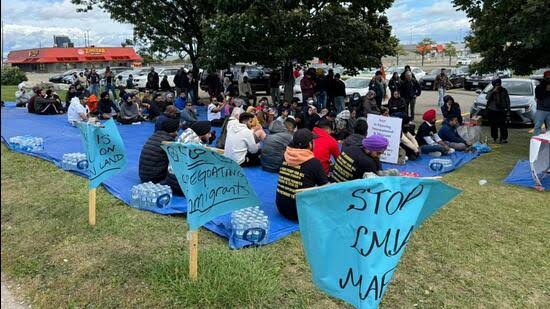Canada’s student visa system is under scrutiny following the arrest of a Pakistani national on terrorism charges. Muhammad Shahzeb Khan, a 20-year-old student, was arrested in Quebec for allegedly planning attacks against Jewish targets in New York City. Khan had entered Canada on a student visa in May 2023, sparking concerns about the country’s immigration policies.

This incident has intensified the ongoing debate about Canada’s immigration system, particularly regarding international students. The country has been experiencing increased opposition to high levels of immigration, with many Canadians linking the current housing crisis to the influx of temporary residents, including students.
The challenges faced by international students in Canada are numerous. Approximately 130,000 former international students face potential deportation as their work permits expire in 2024-2025. Pathways to permanent residence have become more limited, leading some students to resort to desperate measures like filing refugee claims or entering sham marriages to stay in Canada.
In response to these challenges, an indefinite protest has begun in Brampton, Ontario, organized by the Naujawan Support Network. Protesters are demanding extended work permits, post-graduate work permits for all international students, and fair pathways to permanent residence. However, unlike previous protests, current demonstrators are not receiving support from Canadian politicians, attributed to the current anti-immigration sentiment in the country.
The Canadian government has not yet announced any specific measures to address the concerns of the protesting students. However, the incident involving the terrorism suspect may lead to stricter vetting processes for student visas. Many international students who came to Canada for education and better opportunities now face an uncertain future, with the changing political climate and stricter immigration policies affecting their plans and aspirations.
The Canadian government faces the challenge of balancing national security concerns with the benefits of international education. Future policy changes may impact the number of international students admitted to Canada and the pathways available for them to become permanent residents. This situation highlights the complex interplay between immigration policies, national security, and economic needs in Canada. As the debate continues, both the government and the public will need to grapple with these interconnected issues to find a balanced approach to international education and immigration.




